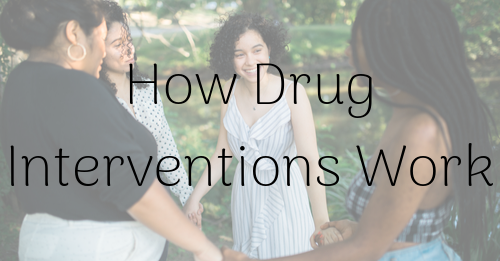It can be difficult to watch someone you love suffer from addiction. Their illness puts them in danger and causes pain for those closest to them, including friends and family members. Sometimes it’s possible to convince a loved one to seek treatment for addiction through a simple heart-to-heart conversation. If the person is in denial about their addiction or resists getting help, a more formal intervention may be necessary.
What Is a Drug Intervention?
A drug intervention is a planned, structured conversation. A small group of friends, family members and other parties come together to talk to their loved one about the consequences of their addiction.
The goal of a drug intervention is to convince the person to accept treatment. An intervention is typically planned without the knowledge of the person it’s intended to help, and sometimes involves the participation of a mental health or addiction intervention professional.
How Effective Are Interventions?
The success of a drug intervention depends on how it is executed. An intervention takes a significant amount of care and planning.
Before an intervention, the people involved research and choose a treatment program to present to their loved one. Then, they plan what each person will say to encourage the person to accept treatment. Finally, the group decides when and where the intervention will take place. Factors to keep in mind include when the person is most likely to be sober and where they will feel most comfortable during the conversation.
What Happens During a Drug Intervention?
Everyone gathers at the designated time and place. They talk to their loved one and explain their proposed treatment option. During a drug intervention, the individuals may:
- Share how the person’s addiction has affected them: Each person prepares a few sentences explaining how their loved one’s addiction has impacted their life. It’s best to talk about facts and individual feelings. For example, you might cite the financial stress of the addiction or your feelings of sadness or hurt.
- Present a specific treatment plan and ask the person to accept: Introduce your loved one to the specific treatment plan that’s tailored to their needs. Show them materials like brochures or a website, if possible. Then, ask them to commit to the treatment.
- Discuss the consequences of not accepting treatment: Each group member explains the actions they will take if the person refuses treatment. These may include cutting financial support or creating healthy distance. Encourage your loved one that treatment is the best way forward.
If the person accepts, they should begin treatment shortly after the intervention.
Why Should You Work With an Intervention Professional?
An intervention can help a person struggling with addiction see the light at the end of the tunnel. These emotionally charged situations can be tense. You want to ensure everyone responds in a calm, understanding way, and that the conversation does not compel your loved one to sink further into addiction.
An intervention specialist or mental health professional can help ensure your intervention is constructive and successful.
How to Get Started With 7 Summit Pathways
If you need help planning a drug intervention, 7 Summit Pathways can help. We offer personalized treatment options and familial support throughout the Recovery process. To learn more, reach out to us or schedule an appointment today.

